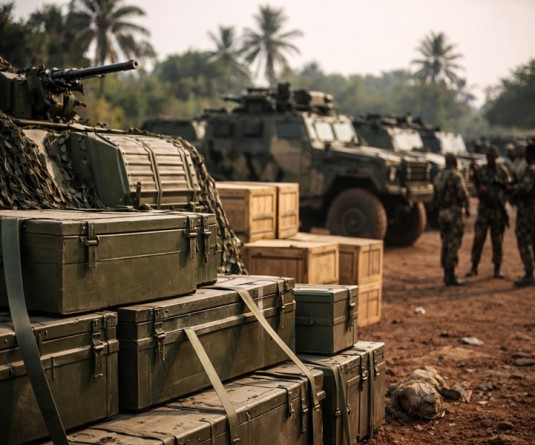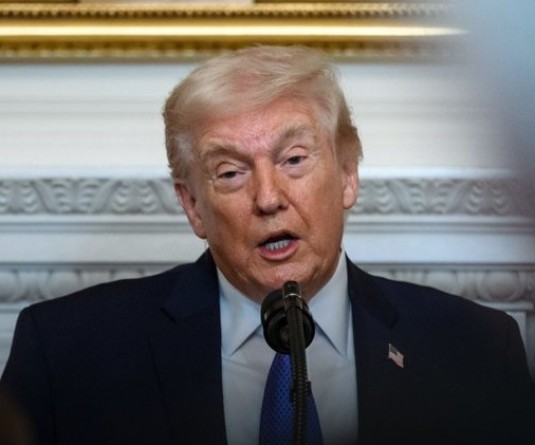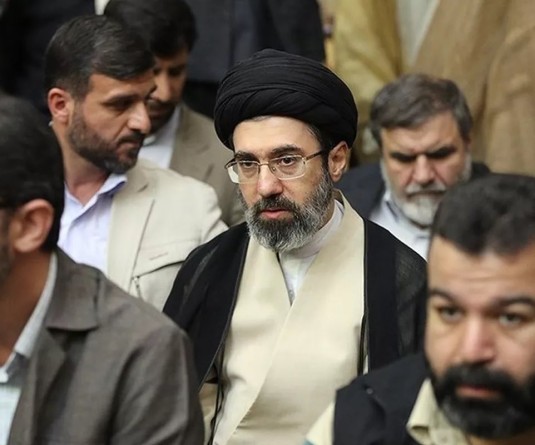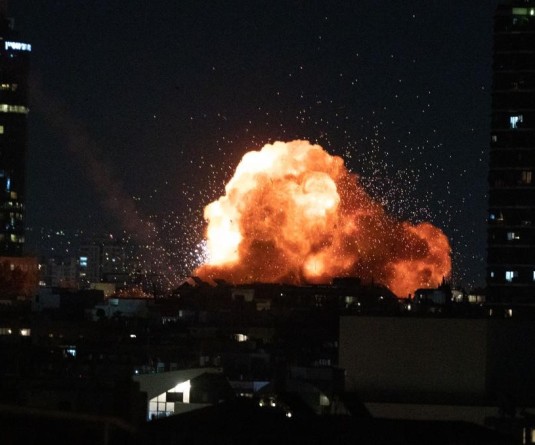
In this January 28, 2011 file photo, Pakistani security officials escort Raymond Allen Davis, a U.S. consulate employee, center, to a local court in Lahore, Pakistan. Aides to Pakistan's president expressed confidence Wednesday that Islamabad and Washington can amicably resolve a diplomatic crisis over a former U.S. Special Forces soldier held in the shooting deaths of two Pakistanis. (AP Photo)
LAHORE, Pakistan, February 11 (AP): Pakistani police alleged Friday that an American held in a pair of shootings committed "cold-blooded murder," while a judge ordered the man's detention extended for 14 days in a local jail and told the Pakistani government to clarify if he has diplomatic immunity.
The police claims and extended detention are likely to further inflame tensions over the case between the U.S. and Pakistan, whose always-uneasy partnership is considered key to ending the war in Afghanistan.
The U.S. says the American, 36-year-old Raymond Allen Davis, shot two Pakistanis on Jan. 27 because they were trying to rob him in the eastern city of Lahore. Washington insists his detention is illegal under international agreements covering diplomats because he was a U.S. Embassy staffer, and American officials have begun curbing diplomatic contacts and threatening to cut off billions in aid to Pakistan if he is not freed.
Pakistani leaders - loathe to incur a backlash in a public already rife with anti-U.S. sentiment - have for days avoided making definitive statements on Davis' legal status, saying the issue is up to the courts. The fact that rival political parties control the federal government and the government of Punjab province, where any trial would be held, is further complicating the Pakistani response.
On Friday morning, Judge Anik Anwar ordered that Davis be taken from police custody and held in a local jail for at least two more weeks. In response to defense requests, he also ordered that the government tell the court in the coming days whether the American has diplomatic immunity.
Later in the day, Lahore police chief Aslam Tareen declared that a police investigation into the shootings determined Davis was not defending himself. "It was an intentional and cold-blooded murder," Tareen told a news conference.
The police chief said Davis told interrogators that one of the Pakistani men had pointed his pistol at him. However, Tareen said, the slain man's pistol had been examined and officers found that its magazine was loaded with ammunition but no round was in the chamber ready to fire. Police also determined that the American shot and killed the second Pakistani as he tried to flee, hitting him in the back, Tareen said.
Tareen's remarks left open the possibility that the man with the pistol had still pointed the gun at the American. The police chief said the issue of diplomatic immunity was a government matter but that the police have sent a preliminary charge sheet recommending Davis face a murder trial.
The judge's push for clarity on whether Davis has immunity could give U.S. officials room to maneuver with their Pakistani counterparts before Davis next hearing, set for Feb 25.
"We regret that this incident resulted in loss of life, however eyewitness reports on the day of the incident showed the American diplomat acted in self defense," said Courtney Beale, a U.S. Embassy spokeswoman.
The police claims and extended detention are likely to further inflame tensions over the case between the U.S. and Pakistan, whose always-uneasy partnership is considered key to ending the war in Afghanistan.
The U.S. says the American, 36-year-old Raymond Allen Davis, shot two Pakistanis on Jan. 27 because they were trying to rob him in the eastern city of Lahore. Washington insists his detention is illegal under international agreements covering diplomats because he was a U.S. Embassy staffer, and American officials have begun curbing diplomatic contacts and threatening to cut off billions in aid to Pakistan if he is not freed.
Pakistani leaders - loathe to incur a backlash in a public already rife with anti-U.S. sentiment - have for days avoided making definitive statements on Davis' legal status, saying the issue is up to the courts. The fact that rival political parties control the federal government and the government of Punjab province, where any trial would be held, is further complicating the Pakistani response.
On Friday morning, Judge Anik Anwar ordered that Davis be taken from police custody and held in a local jail for at least two more weeks. In response to defense requests, he also ordered that the government tell the court in the coming days whether the American has diplomatic immunity.
Later in the day, Lahore police chief Aslam Tareen declared that a police investigation into the shootings determined Davis was not defending himself. "It was an intentional and cold-blooded murder," Tareen told a news conference.
The police chief said Davis told interrogators that one of the Pakistani men had pointed his pistol at him. However, Tareen said, the slain man's pistol had been examined and officers found that its magazine was loaded with ammunition but no round was in the chamber ready to fire. Police also determined that the American shot and killed the second Pakistani as he tried to flee, hitting him in the back, Tareen said.
Tareen's remarks left open the possibility that the man with the pistol had still pointed the gun at the American. The police chief said the issue of diplomatic immunity was a government matter but that the police have sent a preliminary charge sheet recommending Davis face a murder trial.
The judge's push for clarity on whether Davis has immunity could give U.S. officials room to maneuver with their Pakistani counterparts before Davis next hearing, set for Feb 25.
"We regret that this incident resulted in loss of life, however eyewitness reports on the day of the incident showed the American diplomat acted in self defense," said Courtney Beale, a U.S. Embassy spokeswoman.






